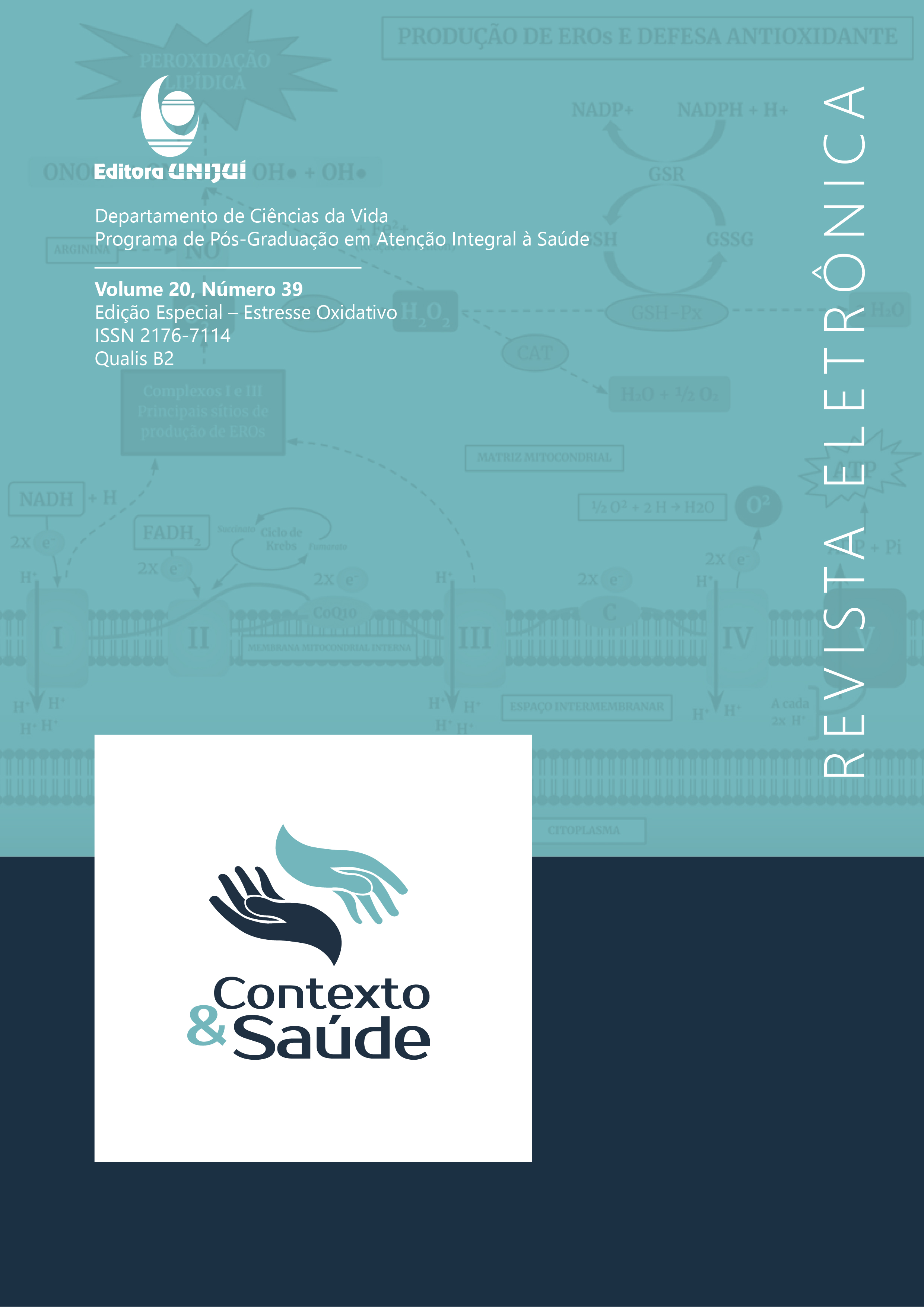EFEITO DA SUPLEMENTAÇÃO COM ÓLEO DE PEIXE NO MODELO EXPERIMENTAL DE SEPSE
DOI:
https://doi.org/10.21527/2176-7114.2020.39.27-34Keywords:
fatty acids, sepsis, mortalityAbstract
Introduction: Sepsis is a highly prevalent syndrome, that causes high morbidity and mortality. Therapies attached to conventional clinical treatment should be studied in order to minimize the effects of sepsis. Objective: To investigate the effect of supplementation with fish oil (FO) rich in omega-3, on renal and pulmonary function, mortality and oxidative stress in rats with sepsis. Methodology: Sepsis was induced by puncture and cecal ligation (CLP). Omega (1 g/kg/day, orally) was given seven days before CLP. Sham groups (CLP without FO, n=10) and CLP + FO (supplemented with FO, n=10) were studied. Oxidative stress, and pulmonary and renal histology were analyzed, with regard to their structure and presence of polymorphonuclear cells (PMN), pulmonary edema index, renal function and survival in 72 hours. Results: Oxidative stress was not different for CLP + FO group (p=0.06). Histology, regarding structure, showed that the group supplemented with FO had a lower structural damage, both in the lung and kidney tissues, however, the polymorphonuclear cells count (PMN) was not different between the groups, for both systems. The rate of pulmonary edema, although lower in the CLP + FO group, was not significantly different from that found in the Sham group (p=0.59). There were no changes in survival improvement caused by FO supplementation. Renal function, studied by urea and creatinine, was not different between the groups. Conclusion: Fish oil (FO) supplementation, in this study, did not improve renal, pulmonary and mortality conditions in rats with sepsis.
Downloads
Published
How to Cite
Issue
Section
License
By publishing in Revista Contexto & Saúde, authors agree to the following terms:
The works are licensed under the Creative Commons Atribuição 4.0 Internacional (CC BY 4.0) license, which allows:
Share — to copy and redistribute the material in any medium or format;
Adapt — to remix, transform, and build upon the material for any purpose, including commercial.
These permissions are irrevocable, provided that the following terms are respected:
Attribution — authors must be properly credited, with a link to the license and indication of any changes made.
No additional restrictions — no legal or technological measures may be applied that restrict the use permitted by the license.
Notes:
The license does not apply to elements in the public domain or covered by legal exceptions.
The license does not grant all rights necessary for specific uses (e.g., image rights, privacy, or moral rights).
The journal is not responsible for opinions expressed in the articles, which are the sole responsibility of the authors. The Editor, with the support of the Editorial Board, reserves the right to suggest or request modifications when necessary.
Only original scientific articles presenting research results of interest that have not been published or simultaneously submitted to another journal with the same objective will be accepted.
Mentions of trademarks or specific products are intended solely for identification purposes, without any promotional association by the authors or the journal.
License Agreement (for articles published from September 2025): Authors retain copyright over their article and grant Revista Contexto & Saúde the right of first publication.

